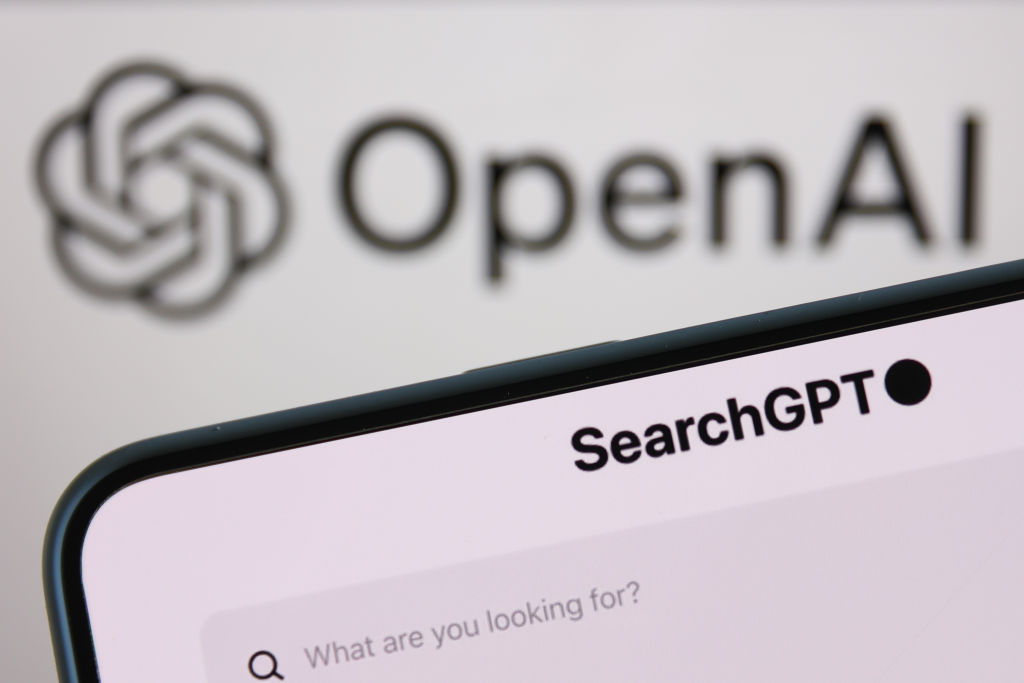Arvind Jain, a former Google (GOOGL) engineer and now CEO of the enterprise A.I. search platform Glean, never saw Google’s approximately 90 percent market share in online search as overtly anticompetitive—after all, Google always had a superior search product, Jain said. In recent years, however, innovation seems to have given way to profitability. “The experience was getting worse, especially on mobile devices, where there are just way too many ads on the page,” the former Googler told Observer.
For the first time in many years, competition is ramping up. In July, OpenAI announced SearchGPT, an A.I.-powered search engine that many already dubbed the “Google killer.” Smaller players, such as Perplexity AI, are also gaining momentum in the search space.
“There is more serious competition than ever before,” Ashwini Karandikar, executive vice president of media, technology and data at the American Association of Advertising Agencies, an industry group, told Observer. Karandikar’s prescience is rooted in decades of industry experience, during which she witnessed digital advertising go from just 5 percent of a company’s advertising budget to practically 100 percent.
Technologically, answer engines powered by large language models (LLMs) have the potential to shake up the search and digital advertising markets, but Jain doesn’t think they’re not yet commercially ready. “Personally, as a user, I don’t feel comfortable going to these answer engines,” he said. That’s because most of them don’t provide the source of information from which they generate answers. Some chatbots are starting to cite sources, but this feature is still in the early stages. Ultimately, competitors will have to lean into a hybridized search solution, said Jain, which will combine plain search and plain answers for an optimized user experience.
That need for transparency has roots in the trust gap highlighted by consumer-facing A.I. products. The A.I. trust gap is “the sum of the persistent risks (both real and perceived) associated with A.I.,” Bhaskar Chakravorti, a business professor at Tufts University, wrote in a recent article for the Harvard Business Review. Common concerns around A.I. include deepfakes, hallucinations, data privacy and A.I.’s inherent black-box problem. Last year, Pew Research found that 52 percent of Americans feel more concerned than excited about the increased use of A.I., with people particularly torn about its application for finding accurate information online.
To establish public trust, companies like OpenAI, Google, Microsoft, Meta and Amazon are all prioritizing self-regulation. These companies are on a steering committee for a truth-seeking organization called C2PA, or the Coalition for Content Provenance and Authenticity. It’s an “open technical standard providing publishers, creators and consumers the ability to trace the origin of different types of media,” according to the coalition’s website.
Brand recognition will play a major role in trust, something Google simply has more of, said Andrew Frank, an analyst at Gartner. “People trust results because they see that they’re appearing on a search results page that they are familiar with,” he told Observer. “If you go to Perplexity, for example, as an alternative search engine, it has some powerful capabilities, but it doesn’t have that established brand trust yet that makes you feel confident that the results it’s giving you are unbiased and authentic.”
However, as the competitive landscape in search and digital advertising inevitably evolves, the leading position is not set in stone. Google is currently facing multiple antitrust charges over its dominance in the online search market. “Whatever happens with the trials, we’re definitely looking at a situation where marketers, in particular, are going to have to diversify their approach and do a lot more experimentation and testing of new channels, new techniques, new strategies for search and discovery,” said Frank, adding that this push forward is “mostly because of the impact of generative A.I.”
As new competitors enter the arena, monopoly concerns are not entirely assuaged. OpenAI itself is backed by Bing creator Microsoft. Meanwhile, Google is keeping up with A.I. trends with new products like AI Overviews. It’s possible the competitive waters will just get muddied. Nonetheless, innovation is already responding, and a somewhat consolidated market is good, said Frank. “We don’t want to see the same kind of fragmentation that made digital media so difficult to deal with in the early days,” he said.

